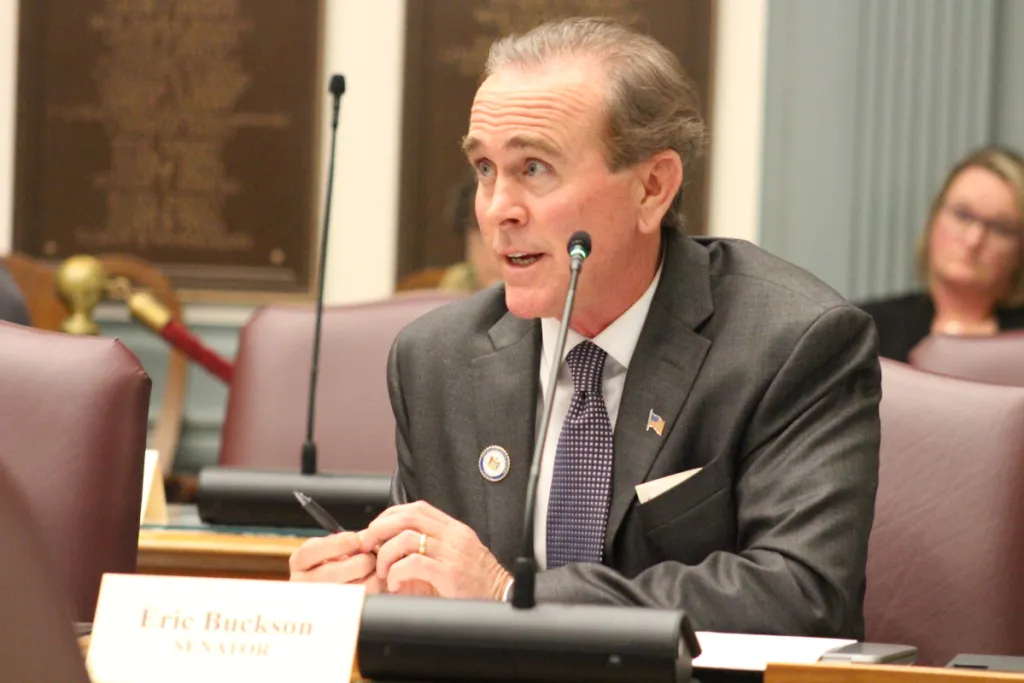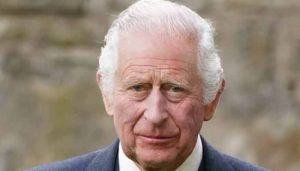
Why Should Delaware Care?
As opioid use rates remain high in Kent County, central Delaware is without drug detox and recovery center options. Dover Mayor Robin Christiansen appointed a task force aimed at addressing this dearth of resources in the state capitol and getting opioid settlement funds allocated to the city. He has also, however, suggested directing the funds to more unconventional uses, such as an aquatic center in the county.
Dover Mayor Robin Christiansen created a task force last month to propose solutions to the city’s opioid crisis, but some stakeholders have differing views of how best to curb drug use in central Delaware.
The task force will aim to present recommendations for City Council approval by January, so Dover can then request money to complete its goals from the state’s Prescription Opioid Settlement Distribution Commission funds, Christiansen said.
Members of the task force, which has not yet held its first meeting, already have different opinions about using law enforcement to force opioid users into treatment. They agree, however, that the lack of drug detox and recovery facilities in Dover – and in Kent County more broadly – is the most pressing issue for the group to address.
“We have nothing here,” said Joe Bedford III, a task force member who both works with opioid users and is a recovering user himself. “There’s no true recovery, treatment centers, resource centers, anything like that in Kent County.”
Christiansen has also drawn scrutiny from task force members, after he suggested using a portion of the city’s opioid settlement allocation be used to fund a proposed competition swimming pool.
Dover has seen dozens of fatal opioid overdoses annually in recent years, according to data from the Delaware Department of Health and Social Services.
The city recorded 34 suspected overdose deaths in 2024, down from 44 deaths in 2023 and 40 in 2022. The department does not yet have data for the current year, a spokesperson said.
Launching the task force
Christiansen appointed City Council Member Roy Sudler to head up the task force at the Sept. 22 City Council meeting.
In the two weeks since, Sudler said he has hit the ground running. He appointed six additional members to the committee, and said he is researching the city’s opioid crisis.
The task force has not yet held its first meeting, but Sudler said he plans to have a meeting by the third week in October.
Christiansen, who is on the statewide opioid settlement local government committee, said he created the task force to get as many people as possible involved with addressing the city’s opioid problem.
“I don’t have a monopoly on good ideas,” he told Spotlight Delaware. “And that’s why I created this committee.”
Sudler, who has a background in mental health and drug abuse research, said he was looking for a mix of “boots on the ground” residents, legislators and law enforcement officials to make up the committee.
One of those appointees, Delaware State University employee Bernard Pratt, has been helping manage a tent encampment near DSU for years.
Pratt said he would like more trained counselors to go out to the encampment and convince people to get treatment, combined with more treatment facilities in the area for those who agree to go.

State Sen. Eric Buckson (R-South Dover), who has been an outspoken advocate for what he calls “more bold and robust” opioid treatment resources in Kent County, will also be on the task force.
Buckson has been advising retired financial advisor Doug Ferris on his project to build a 75-bed detox center at the site of an abandoned auto shop property off Route 1 in Dover. Buckson said he would like the task force to recommend directing funds to both Ferris’s project and other detox center possibilities in the area.
“My intent serving on the task force is to represent my belief that we need to go big and stop with this piecemeal effect,” Buckson said.
Currently, there are not any facilities dedicated specifically to drug detox in Kent County.
Ferris, however, who is not an official member of the task force, said his project is still in the environmental study phase before beginning construction. He said he does not think he would be ready to receive opioid settlement money for the project until further down the line.
In his announcement of the task force Christiansen also said he supports using opioid settlement funds to build an addiction rehabilitation center in Kent County. He said the former Kent County Family Court building could be a viable space for such a facility, which Buckson and State Sen. Kyra Hoffner (D-Smyrna) have also mentioned as a possibility.
Buckson also said the task force should adopt an approach of having police officers arrest opioid users, forcing them into treatment if they refuse it on their own.
Sudler agreed. He said the number of opioid users panhandling on street corners in Dover, particularly on Route 8, has worsened so much that he wants the police to step in to alleviate the panhandlers’ impacts on traffic.
“It’s like a whole operation,” he said. “It’s getting so bad that I think we’re becoming desensitized to it.”
Other task force members, including Pratt and Bedford, said they are skeptical about employing police officers.
“Law enforcement is going to look at it a different way,” Bedford said. “You need folks out of the community like counselors, therapists from treatment facilities, from churches, saying ‘Hey, we can help you, let’s move forward.’”
Sudler’s task force, which he is calling “Team Dover,” also includes retired Dover High School Teacher James Oxford Sr. and community activist Chelle Paul.
Sudler said he is still looking to add someone involved with a mental health facility to the committee.
Deploying opioid settlement money
Christiansen gave the task force a deadline of January 2026 to present recommendations to the City Council, so government leaders can apply for the next round of opioid settlement commission funding.
The commission’s funding is part of a pot of about $57 billion that a group of states won from legal battles with opioid manufacturers and distributors. Last winter, Delaware received $27 million from a settlement from Purdue Pharma and the Sackler family that will contribute to the statewide fund.
State legislators created the opioid commission in 2021 to create a process for distributing the settlement money.
Brad Owens, the commission’s executive director, said the group plans to finalize the process for distributing local government funding by the end of the first quarter of 2026 – March 31 – so those funds can be allocated to municipalities by early in the second quarter of the year.
As of June, state officials had recommended releasing roughly $14 million in opioid settlement grants to addiction service organizations across the state. By 2038, Delaware is expected to receive a total of $250 million in opioid settlement funds.
Because the opioid settlement money will continue to be distributed over a period of years, Christiansen said he views the funding as a “long-term solution” to the drug problems the city is facing.
Dover is one of 10 entities eligible to receive the local governments funding from the commission, along with all three of the state’s counties and the municipalities of Wilmington, Newark, Middletown, Smyrna, Milford and Seaford.
The amount of money allocated to each county or city will depend on a formula that considers overdose deaths, admissions to treatment, a social vulnerability index and population, according to a presentation Owens gave to local leaders on Oct. 1.
Despite Christiansen’s January deadline, Sudler said he wants to get the recommendations finalized sooner – perhaps by Thanksgiving.
“I’m all in,” Sudler said.
Swimming pool controversy
Mayor Christiansen has received criticism from city council and task force members after suggesting at a Sept. 9 Parks and Recreation meeting that some of the opioid settlement money allocated to the city could be used to fund a competition swimming pool.
Dover residents Courtney Ford and Julie Gorman presented their vision at the meeting for the First State Aquatic Center – a state-of-the-art swimming pool that would both bring in tourists for swimming competitions and fill a gap in pools in central Dover.
Ford told Spotlight Delaware the project, estimated to cost between $20 and $44 million, would imitate DE Turf’s model of bringing regional competitions to Kent County.
At the meeting, Christiansen suggested the opioid settlement commission money as a source of funding for the pool.
“It doesn’t say we can’t be creative with those opioid funds,” he said.
While City Council members present at the meeting said they supported the aquatic center project, Council Members David Anderson and Gerald Rocha said the opioid settlement money would be better spent on other projects.
Buckson also pushed back against Christiansen’s suggestion, saying using settlement money to fund a pool would be “losing focus of what we need to be doing.”
Christiansen defended his suggestion of using the settlement money for the aquatic center at both the Sept. 22 City Council meeting and in an interview with Spotlight Delaware.
“I just threw that out there as a suggestion,” he said. “Aquatics is a rehabilitative mechanism for opioid addiction and rehabilitation.”
Notably, Christiansen created the opioid task force after he made comments about using the settlement funding for the aquatic center at the Sept. 9 meeting.
Owens, from the opioid settlement commission, said the city is welcome to propose using the settlement funds for the aquatic center. But he advised them to focus on other ideas more closely aligned with the needs of the county.





